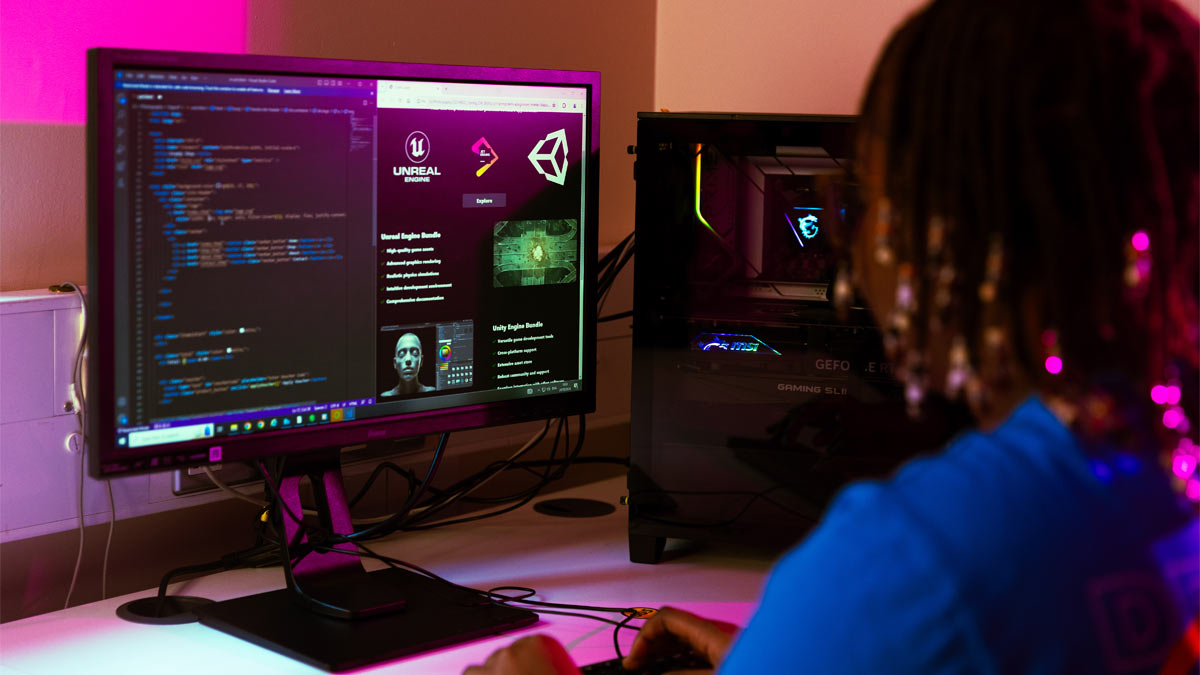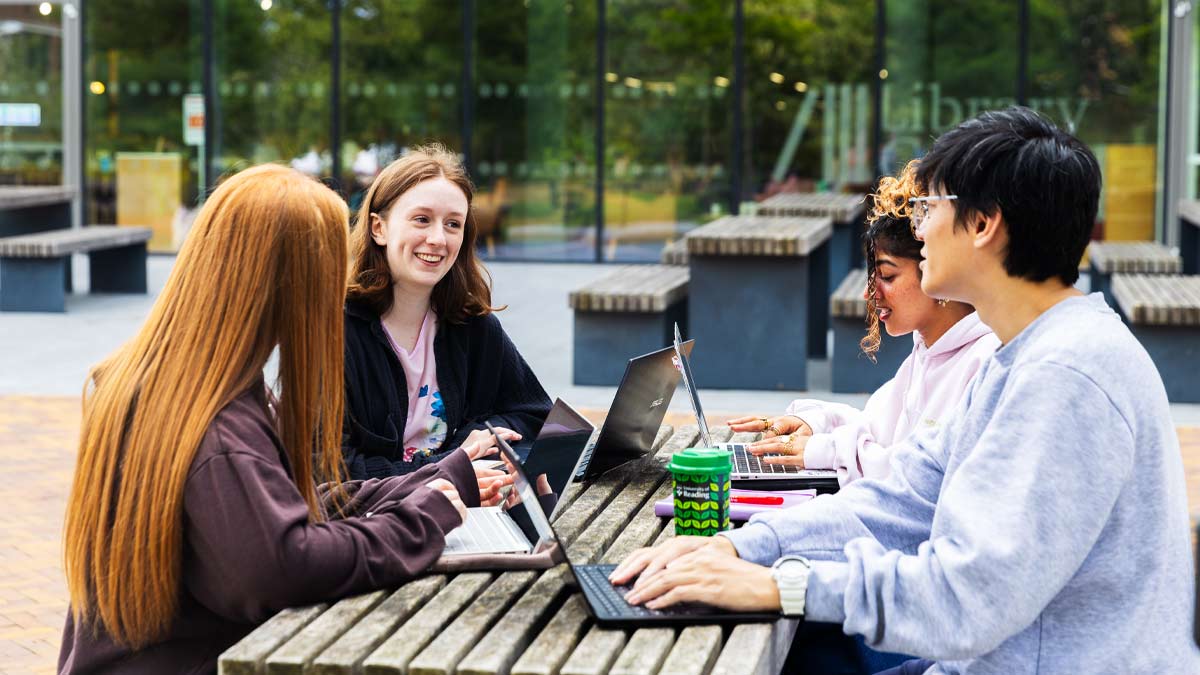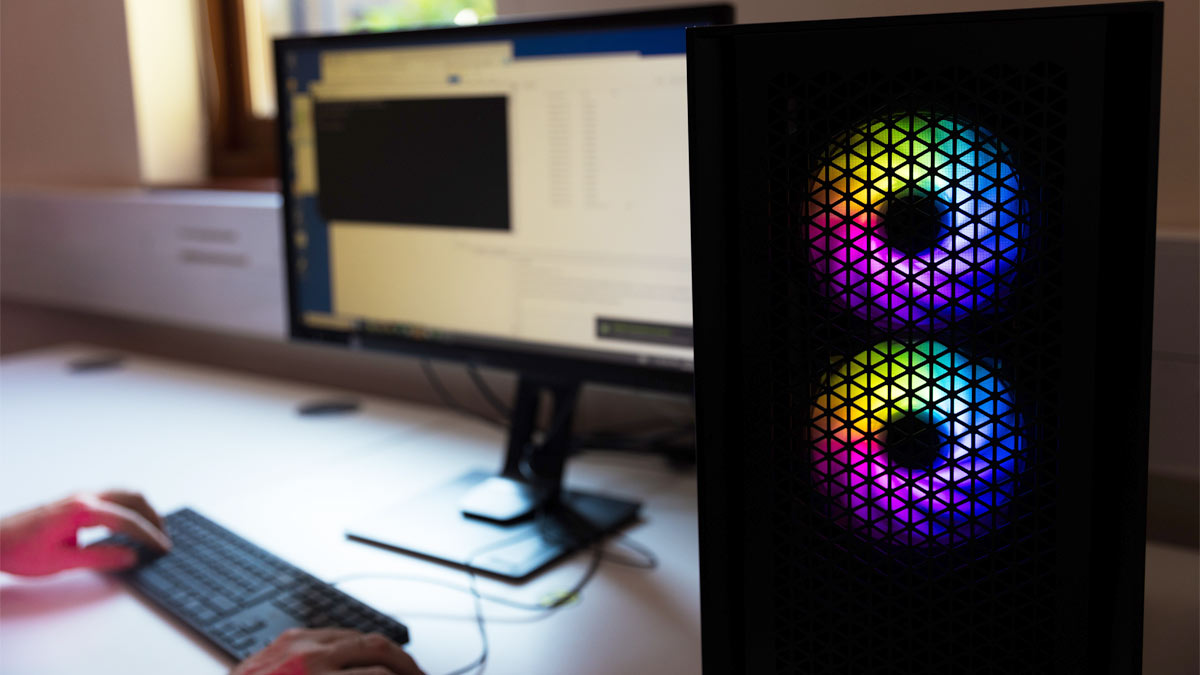Our academics have expertise across a broad range of areas and they work with major international companies to make your learning experience industry relevant.
You'll learn through practical lab sessions, lectures, tutorials, individual and group projects, and placements to develop skills that are highly valued by employers in the IT sector.
Your learning experience
Practical lab sessions

Lab sessions put the theory learned from lectures into practice and give you the practical skills required to be competitive in the working world.
Individual projects

Group work

Many of our modules involve working as a group to solve a problem. For example, if you choose the Virtual Reality, Games and Graphics module, you’ll work together to create a virtual world based around a theme.
You’ll develop your understanding of how a team approaches a project, building essential teamwork and communication skills.Support sessions

You can take advantage of peer-assisted learning opportunities – our final year students offer optional support for first years.
The University also offers Maths Support, a drop-in service designed to help with any areas of maths you find difficult during your studies.
Learn through industry experience
Our dedicated placement team will help you secure paid employment, giving you the opportunity to engage with employers during your studies. As a student on a four-year course, you'll undertake a year in industry. We encourage students on a three-year course to gain relevant work experience with summer placements.
Recently, Computer Science students at Reading have undertaken placements at companies such as CGI, Eli Lilly, Indivior, Microsoft and Virgin Media O2.
You can also carry out a short-term paid internships through the University's Reading Internship Scheme.
Learn more about industry placementsRhian Taylor: making an impression on placement

Rhian’s placement changed her outlook towards her career, resulting in receiving job offers before graduating.
Ross Beale: digital solutions for big brands

During his time at Reading, Ross undertook a summer placement on campus with Conjure, a digital agency. This experience was a turning point for him.
Read Ross's story
Rishil Haren: innovation at Vodafone

Rishil made a strong impression during his placement in the Innovation Team at Vodafone Business, securing a graduate role at the company.
Our research
Our academics’ research expertise and experience directly inform your learning, allowing you to engage with current issues and create solutions.
Our research themes include:
- advanced computing for environmental science
- big data analytics
- data mining
- machine learning
- computational issues of perception and reasoning in relation to image interpretation.

Optional modules

Visit our course pages to learn more about modules
Life in the Department

Get involved in student-led societies such as the Computer Science Society and R U Hacking?, connect with students in all year groups as well as across the wider University, and have fun with like-minded peers.

